
Galatasaray High School is a high school in Turkey. Established in 1481, it is the oldest high school in Turkey and the second-oldest Turkish educational institution after Istanbul University, which was established in 1453. Being an Anatolian High School, access to the school is open to students with a high Nationwide High School Entrance score. Education consists of a blend of Turkish and French curricula and is provided in both languages.

Stoyan Kolev Grebovic is a former Bulgarian footballer who played as a goalkeeper. He is currently a goalkeeper coach at Lokomotiv Plovdiv, but had a short stint as interim manager between 12–19 April 2017 following the resignation of Eduard Eranosyan.
Stoyan Alexandrov is a Bulgarian economist, and former Minister of Finance under Prime Minister Lyuben Berov. A graduate of the Svishtov Academy of Economics, he is the Former President of the Directors' Council and Chief Executive Director of the CCB and President of the Governing Council of the Association of Commerce Banks.
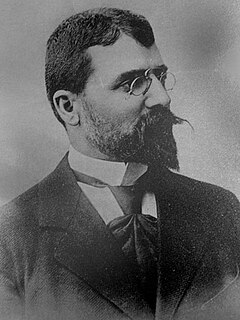
Stoyan Petrov Danev was a leading Bulgarian liberal politician and twice Prime Minister.

Zahariy Stoyanov, born Dzhendo Stoyanov Dzhedev, was a Bulgarian revolutionary, writer, and historian.
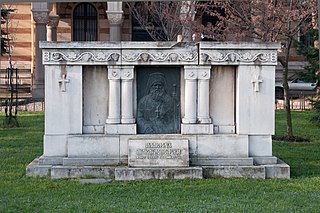
Hilarion of Makariopolis was a 19th-century Bulgarian cleric and one of the leaders of the struggle for an autonomous Bulgarian church.
Nikolov, feminine Nikolova, is a Bulgarian patronymic and family name, derived from the personal name Nikola and may refer to:

Nikola Tihov Obretenov was a Bulgarian revolutionary, one of the combatants for the liberation of Bulgaria, and a participant in the Stara Zagora Uprising and the April Uprising. His book "Memories About Bulgarian Uprisings" was published posthumously and is a primary source of historical information about those events.
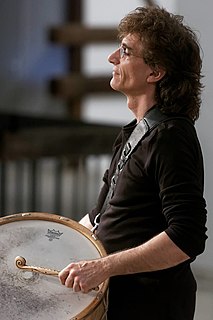
Stoyan Yankoulov, also known as Stundzhi, is one of Bulgaria's most popular and renowned drummers and percussionists. Yankoulov formed the duo Elitsa & Stoyan to represent Bulgaria in the Eurovision Song Contest 2007 in Helsinki, and once again they represented Bulgaria in the Eurovision Song Contest 2013 in Malmö.

Konstantin Velichkov was a Bulgarian writer and public figure.
Stoyan Iliev Stoyanov was the highest scoring Bulgarian fighter ace of the Royal Bulgarian Air Force in World War II with 15 victories.

Dobri Popov Voynikov was a Bulgarian teacher, playwright and journalist of the Bulgarian National Revival. He is regarded as the father of modern Bulgarian theatre and the first Bulgarian producer. Voynikov was among the founders of the Bulgarian Academy of Sciences.
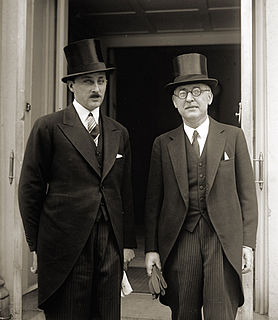
Simeon Traychev Radev was a Bulgarian writer, journalist, diplomat and historian, most famous for his three-volume book The Builders of Modern Bulgaria.

Professor Nikola Iliev Milev (1881–1925) was a Bulgarian historian, publicist, public figure, diplomat, and a participant in the Macedonian revolutionary movement.
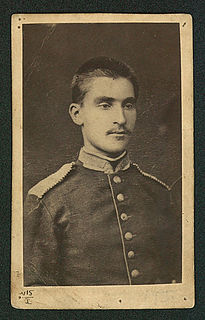
Georgi Dimitrov Izmirliev, nicknamed Makedoncheto, was a Bulgarian revolutionary and public figure. A participant in the anti-Ottoman April Uprising of 1876, he was an assistant to Stefan Stambolov and a military commander of the Tarnovo revolutionary district.

Andrew Petkov was the diocesan prelate of the Bulgarian Eastern Orthodox Diocese of the USA, Canada and Australia with the title of "Metropolitan of New York" during the years 1947 to 1972.

Stoyan Gadev was a Bulgarian stage and film actor born in 1931, deceased in 1999.

Boris Nikolov or Boris Nikolof, nicknamed The Bear, was a Bulgarian footballer and football manager. In the inceptive years of leading Turkish football club Galatasaray S.K., which he co-founded, Nikolov was both the club's first manager and first captain.

Stojan Vezenkov or Stojan Vezenković ; ; was a Macedonian Bulgarian builder and stonemason, who later became a pan-Slavic agent and organizer of anti-Ottoman resistance on the Balkans.
The Anthem of the Bulgarian Education, also known as "Forward, Revived Peoples" is the official anthem of the Saints Cyril and Methodius' Day in Bulgaria. The lyric of the song was based on a poem by Stoyan Mihaylovski.



























